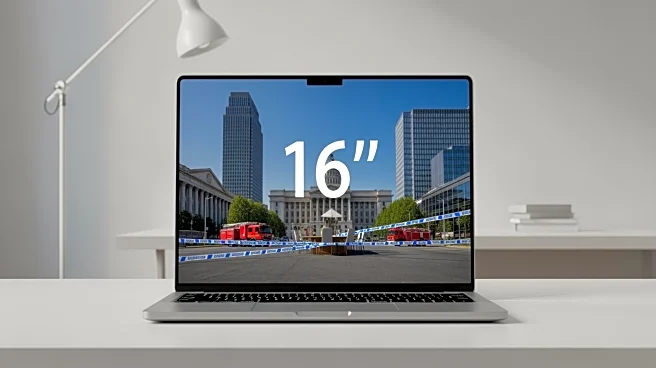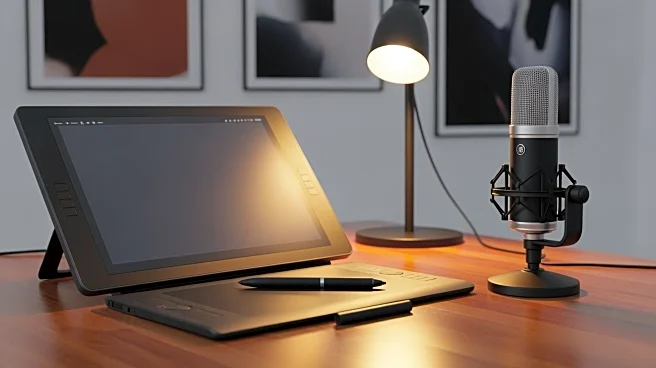What's Happening?
The HP EliteBook 16-inch Business Laptop, initially launched at a price higher than a MacBook, is now available at a significantly reduced price. Originally priced at $2,400, the laptop is now offered
at $859, marking a 64% discount. This laptop features a spacious 16-inch screen, ergonomic keyboard, and modern processor, making it suitable for multitasking and long writing sessions. It supports quick boot times and fast app launches, enhancing productivity for users who need to switch between various tasks such as research, document editing, and presentations. The laptop also includes multiple ports for connectivity, such as USB-C, HDMI, and USB-A, and supports Bluetooth and Wi-Fi for seamless integration with other devices.
Why It's Important?
The significant price reduction of the HP EliteBook 16-inch Business Laptop makes it an attractive option for consumers seeking a high-performance device without the premium cost. This move could influence the competitive landscape in the laptop market, particularly affecting sales strategies of other brands like Apple. The laptop's features cater to professionals and students who require reliable performance for demanding tasks, potentially increasing HP's market share in the business and educational sectors. The discount may also drive increased sales volume, benefiting HP's revenue and brand visibility.
What's Next?
With the price cut, HP may experience increased demand for the EliteBook 16-inch Business Laptop, prompting potential stock shortages or further promotional strategies to maintain consumer interest. Competitors might respond by adjusting their pricing or offering similar discounts to retain market share. Additionally, HP could leverage this opportunity to introduce more products with competitive pricing, expanding its reach in the consumer electronics market.
Beyond the Headlines
The price reduction of the HP EliteBook 16-inch Business Laptop highlights the ongoing trend of tech companies adjusting pricing strategies to remain competitive. This shift reflects broader economic pressures and consumer demand for affordable yet high-quality technology solutions. The move may also encourage other companies to innovate and offer more value-driven products, impacting the overall dynamics of the tech industry.










